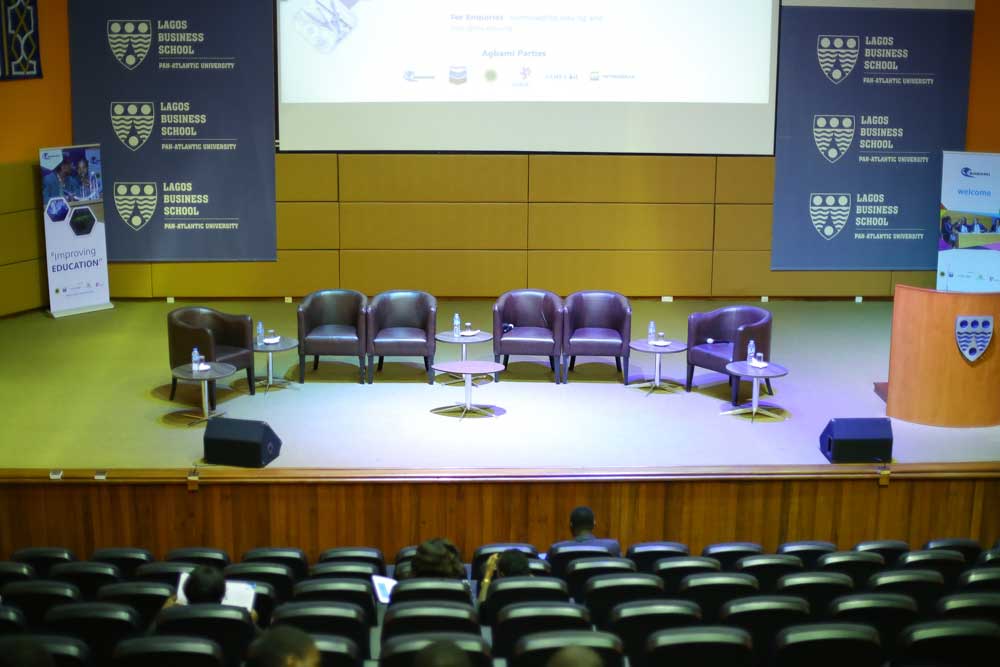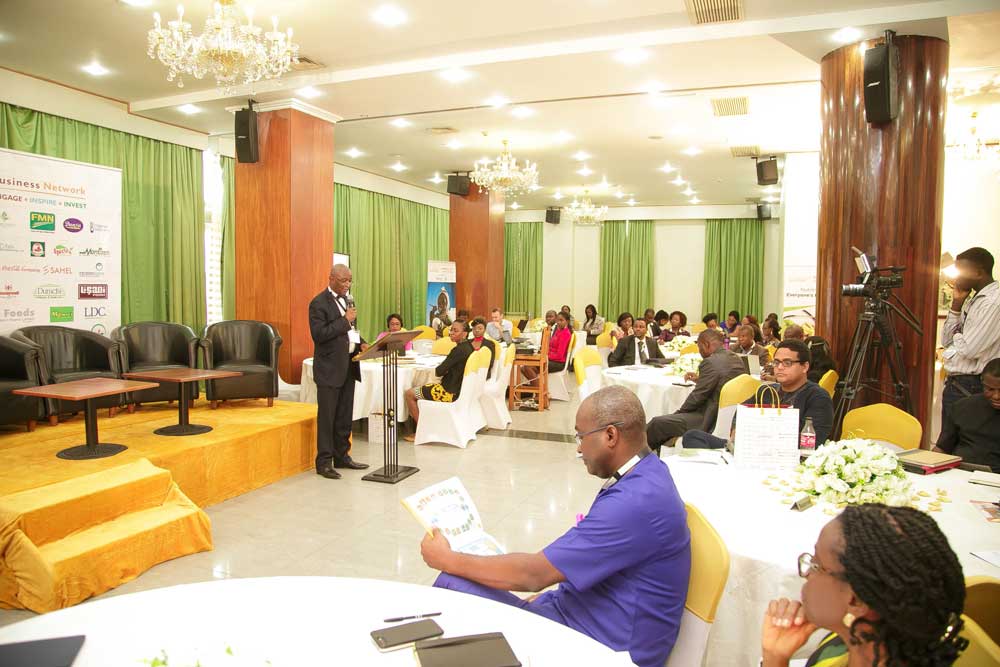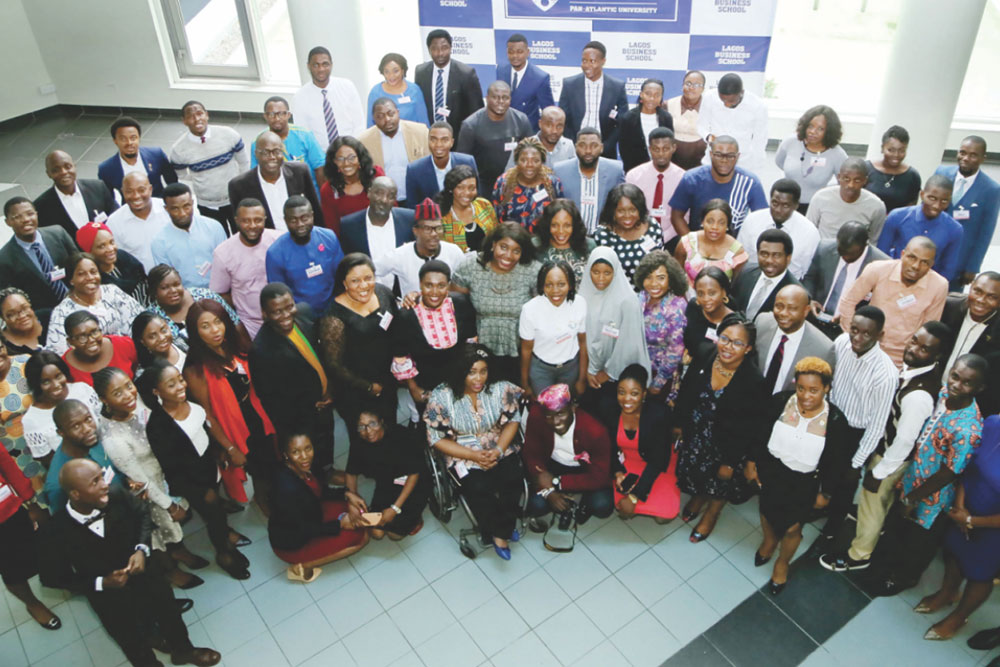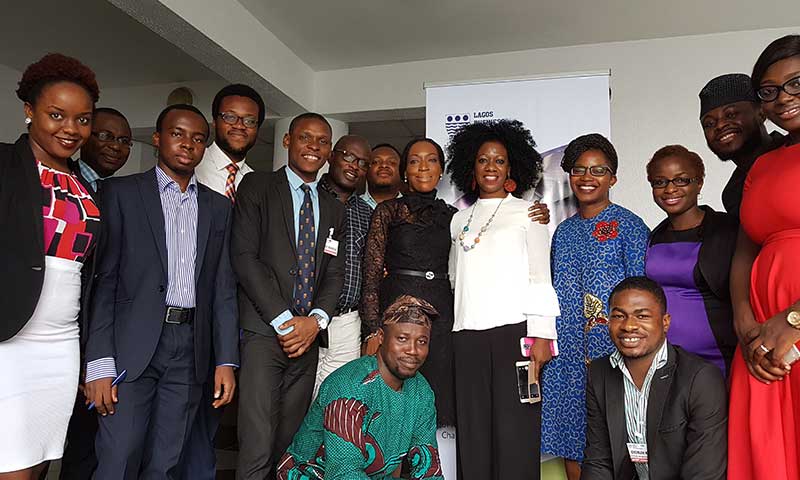The LBS Sustainability Centre is the first of its kind in Nigeria. It is designed to refocus the relationship between businesses and their stakeholders by contributing to the development of responsible business leaders. We work with organisations to help them incorporate sustainable practices in their operations and develop innovative products and services that transform their communities and simultaneously generate economic value. This enables businesses to sustain livelihoods, reduce poverty, and contribute to national development as well as the achievement of the Sustainable Development Goals (SDGs).
Stakeholder Engagements & Partnerships
Achieving sustainable long-term change in Nigeria requires a significant strengthening of the policy formulation and implementation process.
This involves directly influencing policymakers, regulators and companies. The Centre utilises ICT resources – digital media, social media platforms, social networks and dialogue sessions to advocate for the improvement of business engagement with society. This strategic focus has met with considerable success. The Centre was involved in the conception of the sustainable banking initiative by the Central Bank of Nigeria (CBN).
This initiative led to the creation of the Nigerian Sustainable Banking Principles in 2012. The Centre was also involved in the formation of the Nigerian Business Coalition for Sustainable Development (NBCSD) in 2014. The Director of the Centre, Professor Chris Ogbechie also represents LBS as co-chair of the Private Sector Advisory Group on SDGs in Nigeria. The Centre’s commitment to collaborative partnership has seen it engage with some of Nigeria’s leading organisations to mainstream the sustainability agenda in the country.


Industry Engagement
The LBS Sustainability Centre works with organisations in the design, development, implementation and assessment of their sustainability strategy, initiatives and projects. We consolidate theory and practice on sustainability, builds leadership skills and supports constructive dialogue and collaboration between business, government, civil society and academics in order to find solutions to critical sustainability challenges.
- Strategy Advisory and Development
- Socio-Economic Impact Assessment
- Corporate Social Responsibility Programme Design
- Sustainable Development Goals (SDGs) Initiative Implementation
Research
LBS Sustainability Centre conducts industry and practitioner-focused research in business ethics, sustainability, social entrepreneurship and corporate governance. The research output of the Centre serves as the anchor for sustainability courses in Lagos Business School’s full-time MBA programmes and executive education curriculum, as well as training programmes.


Capacity Building Programmes
In the Centre’s quest for continuous improvement, training programme curricula are consistently assessed with a view to ensuring they remain relevant and of immense use to our participants. As such, the Centre offers a series of capacity building programmes for public officials, business executives, and entrepreneurs, as well as sustainability courses as part of LBS’ MBA programmes.
Our Thematic Focus

Corporate Sustainability
Corporate sustainability entails the approach and action of businesses towards sustainable development, sustainability strategy, shared value, corporate social responsibility (CSR), and corporate philanthropy.
It also involves the designing, building, and operating of structural elements in ways that do not diminish the social, economic and ecological processes required to maintain human equity, diversity, and the functionality of natural systems.
Responsible Business and Leadership
Responsible businesses are principle and value-driven, demonstrating consideration for employees, customers, suppliers and the wider society in the course of their profit-making activities.
We believe that leadership plays a key role in running businesses in a responsible manner


Circular Economy
A circular economy is based on the principles of designing out waste and pollution, keeping products and materials in use, and regenerating natural systems. This industrial model aims to restore or regenerate the ecosystem, society and economy by intention and design.
Nonprofit and Social Enterprise Management
Small and Medium Scale Enterprises (SMEs) contribute to a country’s gross domestic product (GDP), wealth creation, employment and technological advancement.
Social entrepreneurship entails recognising social problems and achieving social change by employing entrepreneurial principles, processes and operations.


Public Policy
Government actions and policies play an important role in promoting sustainability practices. Our public sector engagements serve as a platform to advocate for policies that facilitate sustainable development at national and continental levels.
Our Customised Training Programmes

Our Sustainability Courses examine ways in which organisations can enhance their business performance and improve their social and environmental impact in the long term. We also provide customized, in-house management development programmes.


